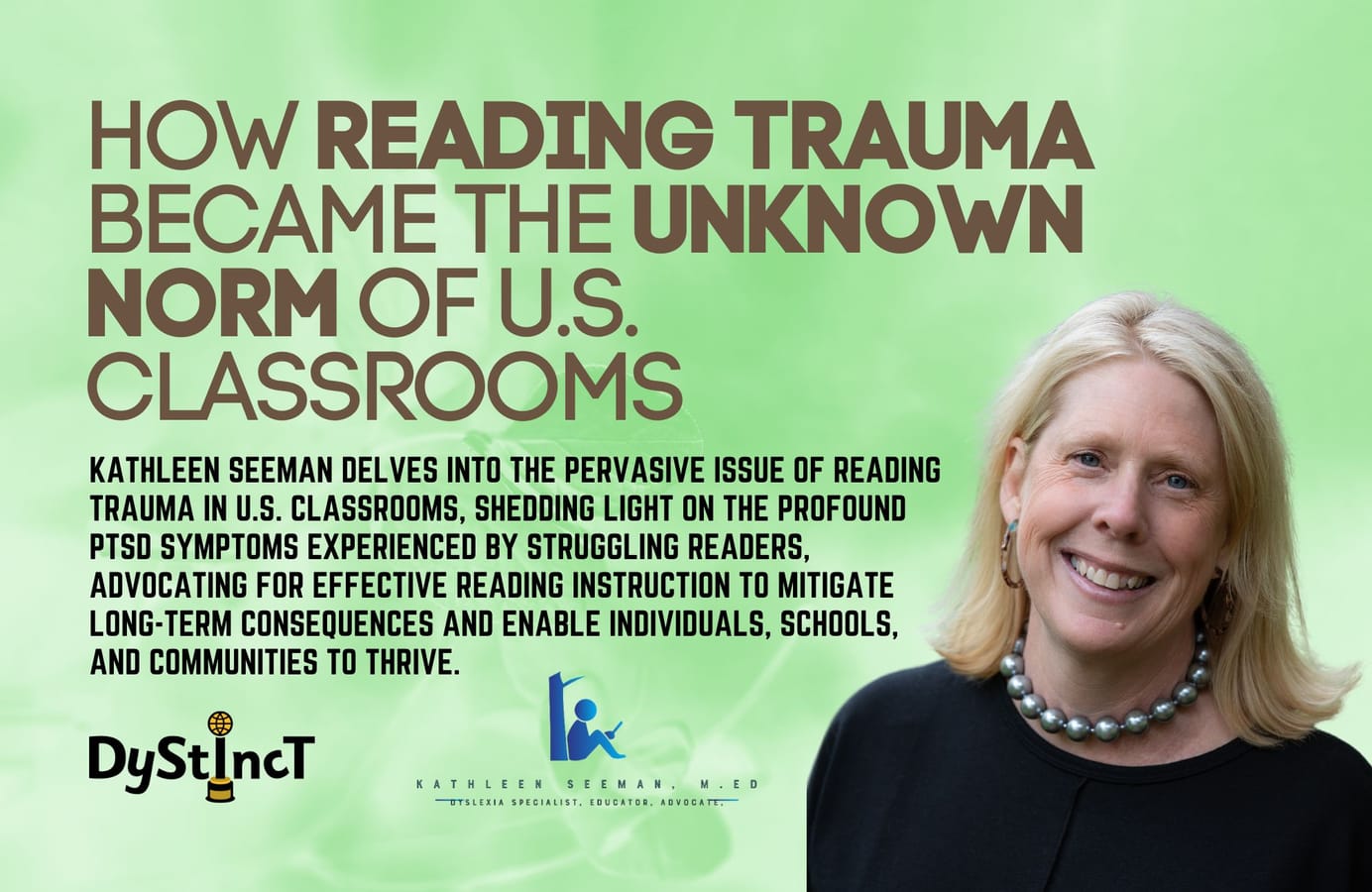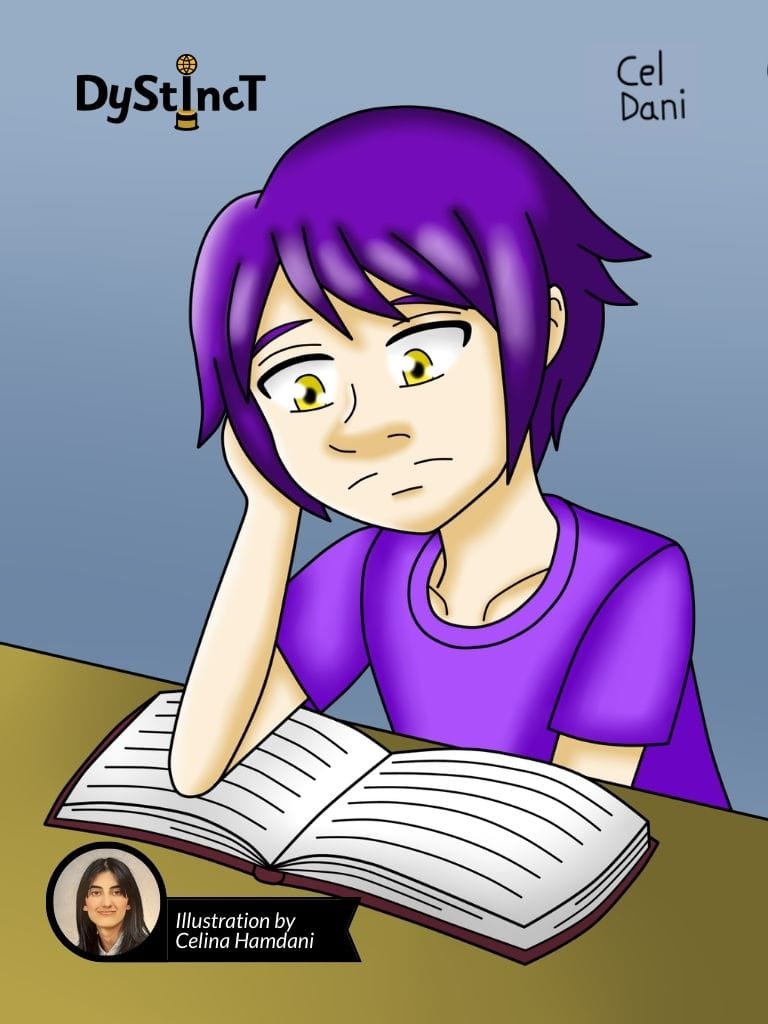
Issue 20: How Reading Trauma Became the Unknown Norm of U.S. Classrooms | Kathleen Seeman
Kathleen Seeman delves into the pervasive issue of reading trauma in U.S. classrooms, shedding light on the profound PTSD symptoms experienced by struggling readers, advocating for effective reading instruction to mitigate long-term consequence.
When we think of Post Traumatic Stress Disorder, the image our minds most frequently conjure up is one of a combat soldier returning from war. While many of our soldiers do feel the effects of PTSD, the other very real faces of PTSD are children and adults who struggle to read. Struggling readers wrestle with a host of emotions and reactions, many of which they themselves cannot understand or explain. These trauma responses occur in classrooms, office spaces, within relationships, and in other situations where the struggling reader is experiencing the shame and humiliation of not knowing how to read. This is reading trauma in action. These reactions can vary but are very much rooted in abject reading failure.
Post Traumatic Stress Disorder is very real for millions of Americans who struggle to read or have struggled to read in the past. The staggering truth is both these children and adults feel PTSD symptoms at the same intensity as those combat veterans returning from war. The very definition of trauma is a deeply distressing or disturbing experience that can have a profound physical and emotional impact on a person. It can be caused by a single event, such as a car accident or a natural disaster, or by repeated exposure to stressful or traumatic situations, such as child abuse or domestic violence. For many children, sitting in classrooms where they are not getting the correct reading instruction, they need to be successful readers becomes a traumatic experience day after day. Tragically, all too often, these symptoms will go undiagnosed yet plague these individuals for their entire lives.
The study, Reading Failure and Juvenile Delinquency and Dr Orton's work both showed that PTSD is present in students who struggle to read as early as kindergarten and can continue all the way through a person's senior years. Without an understanding of the effects of reading trauma, a person can spend their entire life blaming themselves for not learning how to read. The effects include lifelong low self-esteem, behavior problems, anxiety, aggression, withdrawal from friends and family, divorce, lower socio-economic status, and often a shorter life expectancy. The school-to-prison pipeline is a very real experience for struggling readers with the average reading proficiency level of both male and female prisoners at a fourth-grade level. Struggling readers very much internalize the thought process that they are "dumb", and sadly for many, this will be their inner story for their entire lives. The damage this can cause can plague families for generations.
Dyslexic students make up one in five students in U.S. classrooms; 50% of those students will never be diagnosed. These students need specific, direct, systematic instruction to succeed as readers, and when they do receive this instruction, they thrive as readers and learners.

On a broader scale, we must acknowledge that our current national reading crisis shows us that the number of struggling readers is even more staggering than 1 in 5; it is hovering around 70%. Think about that: seven out of every ten children in classrooms are struggling to read. This crisis crosses economic, gender, racial, and geographical boundaries in the United States. A majority of all of America's students are struggling to read. Author Zaretta Hammond said it best, "We need to stop saying that only 30% of our students are reading proficiently. We need to be saying 70% of our kids are not. Our hair should be on fire." More than our hair should be on fire; the effects of this inferno will plague all aspects of our country for years to come. This is literally a five-alarm fire, burning out of control, and our country has already been harmed greatly by this reading crisis. The fact is, we do not have a reading crisis; we have a reading instructional crisis, and we have had one for years. It has been affecting generations of children and families. The difference is wealthy families can afford tutoring and private schools to close the reading gaps. Lower socio-economic families do not have this luxury, and their children are often the ones who feel the consequences of illiteracy and reading trauma the most.
This post is for paying subscribers only
SubscribeAlready have an account? Log in


